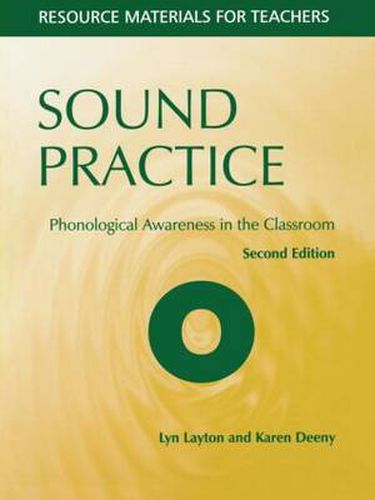Readings Newsletter
Become a Readings Member to make your shopping experience even easier.
Sign in or sign up for free!
You’re not far away from qualifying for FREE standard shipping within Australia
You’ve qualified for FREE standard shipping within Australia
The cart is loading…






Phonological awareness is the key to independent literacy and must be explicitly tackled in the classroom to promote early reading and writing and to address written language difficulties in older children. This resource for initial and in-service training includes photocopiable worksheets. The second edition covers: how young children can be helped to discover basic facts about an alphabetic spelling system, within the context of their developing spoken language; why children might fail to understand letter-sound links; the origins of severe and persistent difficulties with achieving functional literacy skills; developmental processes underpinning the areas of learning identified in national initiatives for promoting children’s learning; the need for differentiation strategies to respond to individual chidlren’s learning needs within national initiatives; and techniques and approaches that can be effectively applied to fulfil curriculum objectives.
$9.00 standard shipping within Australia
FREE standard shipping within Australia for orders over $100.00
Express & International shipping calculated at checkout
Phonological awareness is the key to independent literacy and must be explicitly tackled in the classroom to promote early reading and writing and to address written language difficulties in older children. This resource for initial and in-service training includes photocopiable worksheets. The second edition covers: how young children can be helped to discover basic facts about an alphabetic spelling system, within the context of their developing spoken language; why children might fail to understand letter-sound links; the origins of severe and persistent difficulties with achieving functional literacy skills; developmental processes underpinning the areas of learning identified in national initiatives for promoting children’s learning; the need for differentiation strategies to respond to individual chidlren’s learning needs within national initiatives; and techniques and approaches that can be effectively applied to fulfil curriculum objectives.